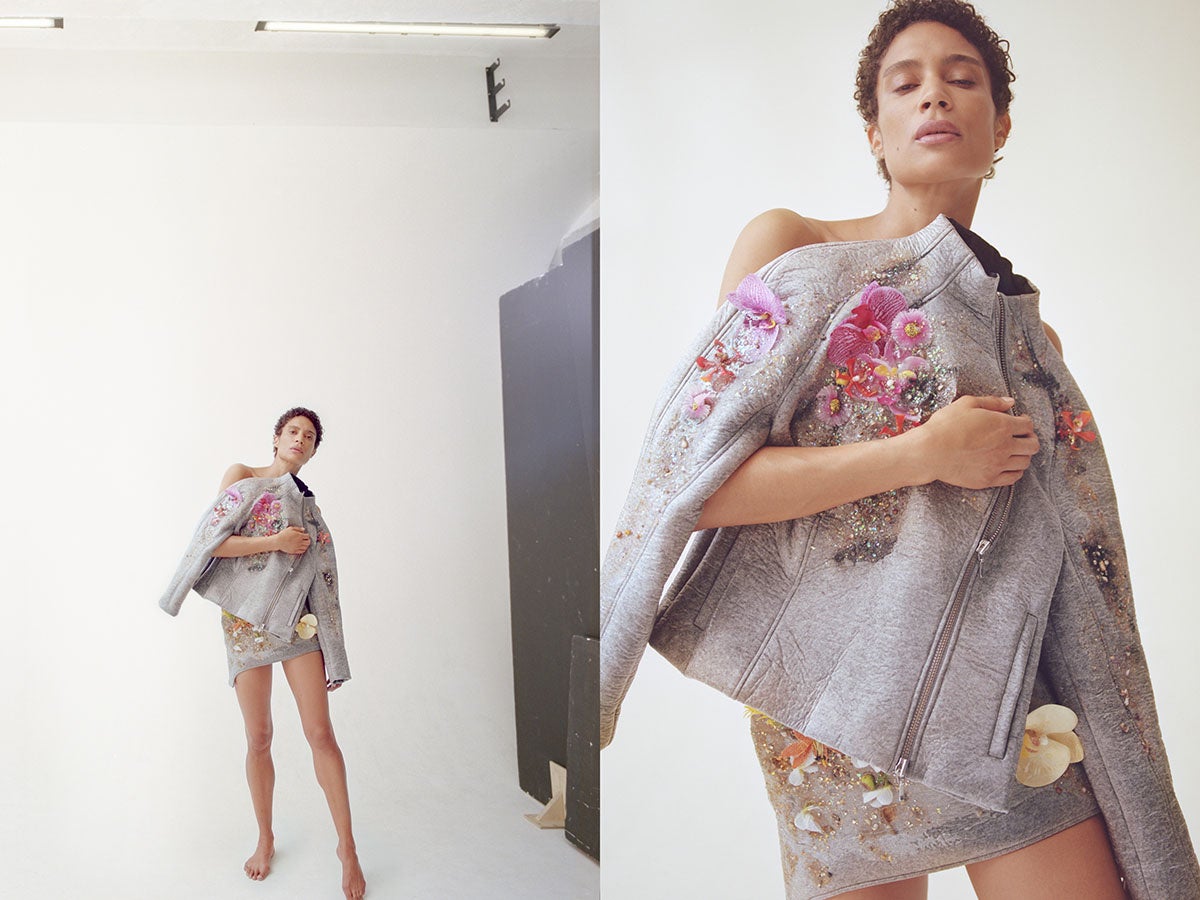
The Transformative Power of Fashion
From her current studio in Berlin, Duong approaches her work from a perspective of trying to expand our binary preconception of womenswear and menswear.
“If you want to have your own brand, you need to be passionate about being an entrepreneur. Find your own process and ways to work.”, says the Ho Chi Minh City-born Swedish designer Nhu Duong, as we reach her in the middle of preparations for the Absolut Iconic exhibition and Fashion Week Stockholm. She continues to reflect on the industry and her own place in it;
“Just like with other cultural expressions, fashion is a reflection of the times we live in. Rather than getting caught in trends, I think it is important to discuss the role of fashion and the values it highlights in society. Only then can we address the fundamental societal and ecological issues we are facing today, and make something that is more than merely just “clothes”.”
Duong made a serious impression on the fashion industry back in 2013, when she won the Young Fashion Industry Award. This came as no surprise to those who had followed her career, as she had already created a great deal of buzz in 2010 when, upon graduation from Beckmans, her dissertation collection got picked up by the Swedish denim and fashion brand Weekday.
Just like with other cultural expressions, fashion is a reflection of the times we live in. Rather than getting caught in trends, I think it is important to discuss the role of fashion and the values it highlights in society.
From her current studio in Berlin, Duong approaches her work from a perspective of trying to expand our binary preconception of womenswear and menswear.
“I’m interested in the way people actually wear my clothes, and integrate them into their wardrobe to create their own memories. I wish for my collections to help people elevate their true self, or rather explore different versions of themselves. I am deeply interested in this transformative power of fashion.”
The quality of not wanting to appease a trend or particular style is something Duong has been noticed for throughout her career. Despite her somewhat unorthodox approach, Doung has found her own way forward in the industry. She explains, “I’ve tried to find my own ways of working and producing fashion, in order to set up a structure allowing me to work in my own pace. For me, this means experimenting through diverse collaborations, building my own community, as well as exploring new ways of showing and selling clothes.”
The willingness to experiment with materials and textile techniques perhaps stems from her ability to find inspiration outside of the fashion industry. “On the one hand, I get a lot of inspiration from my friends, especially the ones who do not work in fashion. On the other hand, I experiment with clothes and materials on myself – for me, fashion is a kind of performance or role-play through clothes.”
Duong is no stranger to collaborations, in fact she is known for working with partners in and outside the fashion industry, which is perhaps the reason Duong chose to take on the challenge when we reached out for a collaboration. She explains, that it is “A great way to think outside the regular way of creating and showing fashion. For me, it was an opportunity to make a garment that is experimental, yet as part of the collection it also becomes historic.”